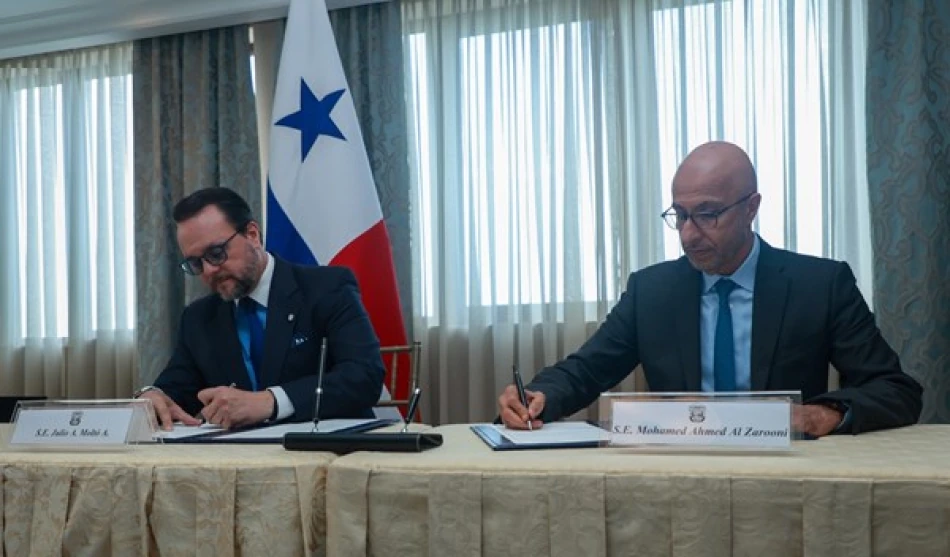
Free Zones Authority Inks Deal with Panama Government to Boost Trade and Investment Opportunities
Panama Positions Itself as Latin America's Free Zone Hub with Major 2026 Conference Deal
Panama has secured hosting rights for the World Free Zones Organization's 12th Annual International Conference in July 2026, marking a strategic pivot toward Latin American markets for the Dubai-based organization. The agreement signals Panama's growing ambitions to leverage its geographic advantages and established free zone infrastructure to attract global investment and position itself as the region's premier trade gateway.
Strategic Partnership Expands Global Free Zone Network
The memorandum of understanding was signed between Dr. Mohammed Al Zarouni, Chairman of the World Free Zones Organization, and Panama's Trade and Industry Minister Julio Molto during an official delegation visit to Panama City. The signing ceremony included meetings with President José Raúl Mulino Quintero, underscoring the government-level commitment to the partnership.
This collaboration represents more than a simple venue agreement. For the Dubai-headquartered organization, which represents free zones from over 100 countries, Panama offers a strategic foothold in Latin America's $5.6 trillion economy. The region has seen increased free zone development as countries compete for nearshoring opportunities driven by US-China trade tensions.
Panama's Calculated Investment Play
Geographic and Infrastructure Advantages
Panama's appeal extends beyond its famous canal. The country operates some of the world's most successful free zones, including the Colon Free Zone, which handles over $20 billion in annual trade. Its position as a natural logistics hub connecting North and South America, combined with established financial services infrastructure, creates compelling advantages for international businesses seeking Latin American market access.
Economic Resilience Model
Dr. Al Zarouni highlighted Panama as "a leading model of economic resilience and global integration," pointing to the country's consistent GDP growth averaging 4-6% over the past decade. Unlike many regional peers, Panama maintained economic stability through various global disruptions, from the 2008 financial crisis to recent supply chain challenges.
Market Implications and Regional Competition
The conference selection reflects broader trends in free zone development. While traditional hubs like Dubai and Singapore continue expanding, Latin American countries are increasingly competing for trade facilitation roles. Colombia's recent free zone reforms and Mexico's nearshoring boom create a competitive landscape where Panama must differentiate itself.
For investors and multinational corporations, Panama's enhanced profile through this partnership could translate into improved regulatory frameworks and expanded business incentives. The country's dollarized economy eliminates currency risk for US-focused operations, while its extensive bilateral trade agreements provide preferential access to multiple markets.
Technology and Innovation Focus
Minister Molto emphasized that the partnership would "open new horizons for regional cooperation in technology and investment." This suggests Panama may be positioning its free zones beyond traditional trade facilitation toward higher-value activities like fintech, logistics technology, and digital services.
The timing aligns with Panama's broader digital transformation initiatives, including recent blockchain and cryptocurrency regulatory developments. As regional governments increasingly recognize digital assets and technologies, Panama's free zones could become testing grounds for innovative business models.
Looking Toward 2026
The July 2026 conference will likely showcase Panama's infrastructure developments, including ongoing canal expansion projects and planned logistics parks. For the broader free zone industry, the event represents an opportunity to address challenges including sustainability requirements, digital transformation, and evolving international trade regulations.
Success in hosting this conference could establish Panama as the de facto leader in Latin American free zone development, potentially attracting additional international organizations and creating a multiplier effect for the country's trade facilitation ambitions.
Most Viewed News

 Layla Al Mansoori
Layla Al Mansoori






